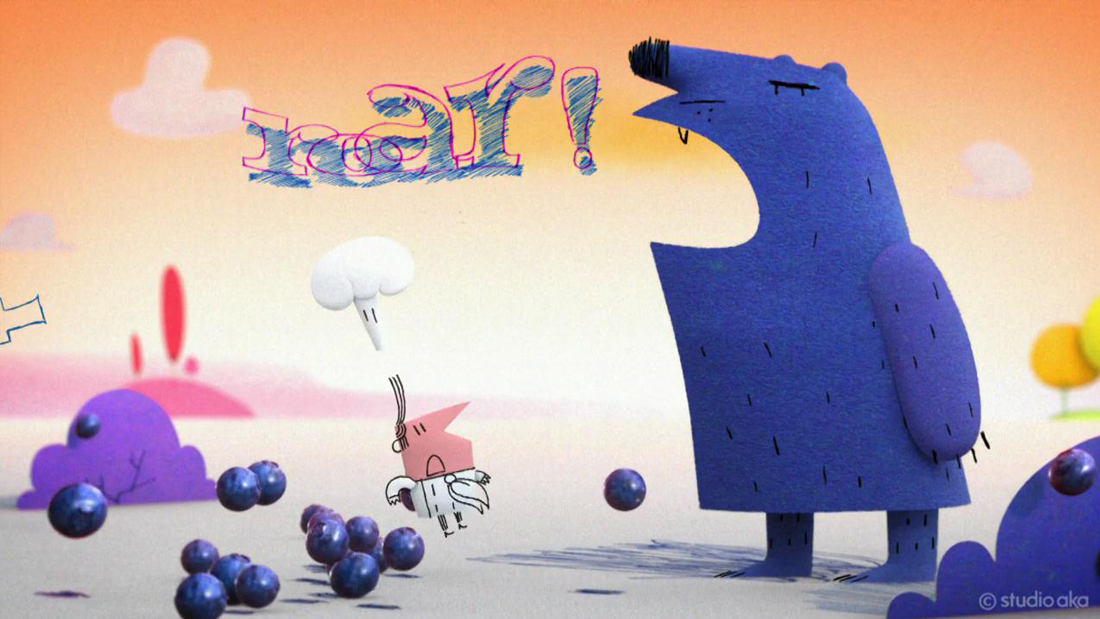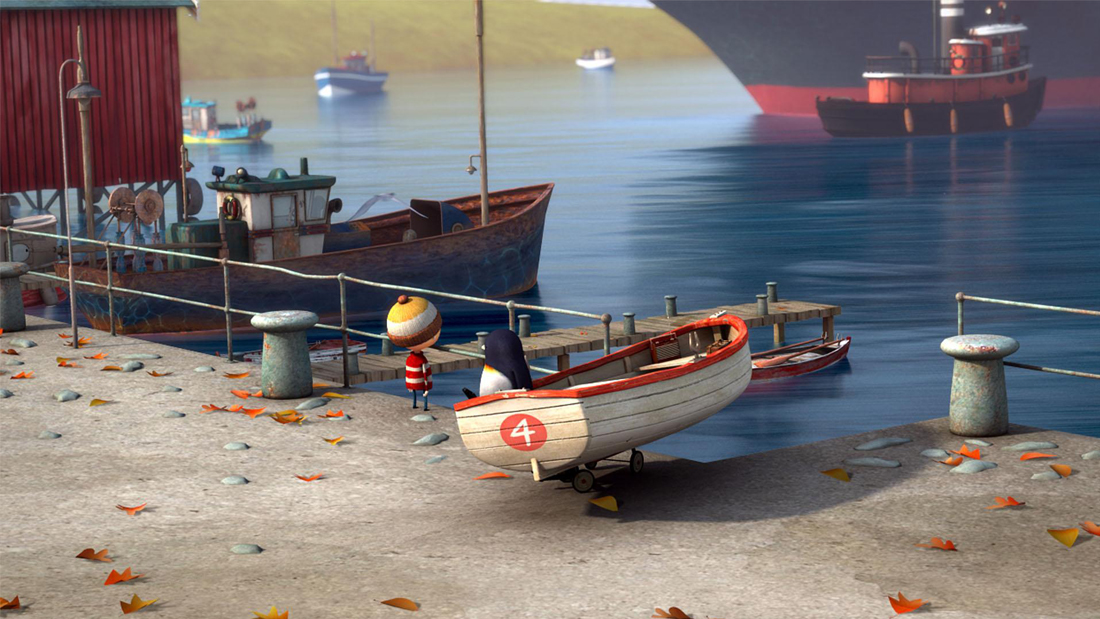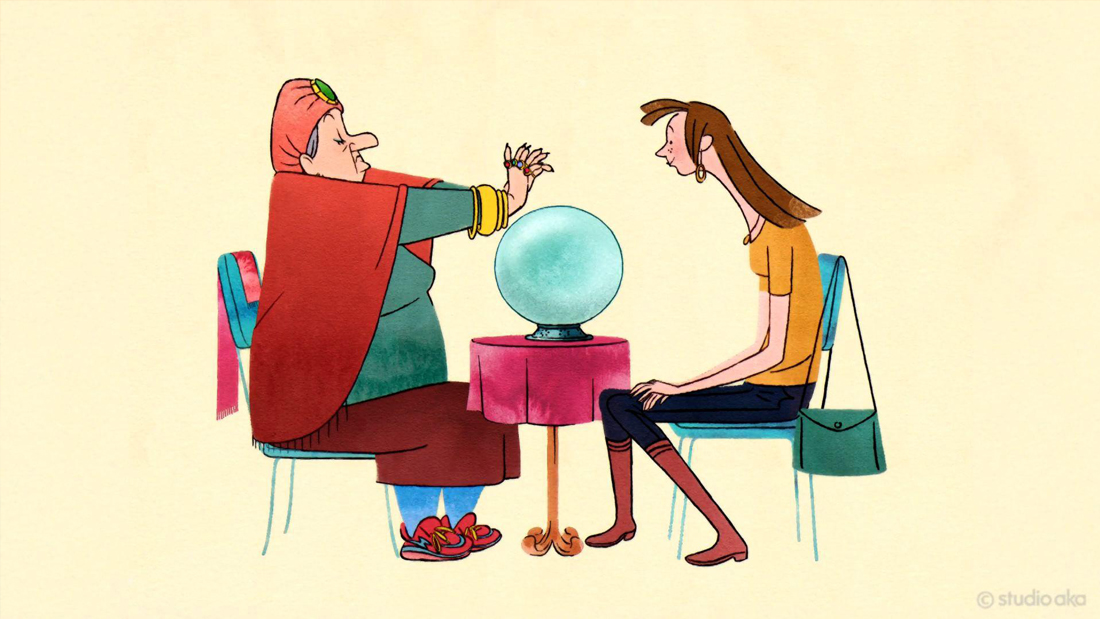Sue Goffe, Managing Director and Head of Production, entered the animation industry by chance after art school, with a temporary job as a runner at the studio’s predecessor Pizazz Pictures. She stayed on, learned the business, rising to become a producer and eventually a partner with company Co-Founder Pam Dennis who – along with director Philip Hunt – rethought and re-launched the company as Studio AKA. Over a decade later, the studio’s artists are now drawn from all over the globe as the studio continues to seek out exceptional talent and vision from a diverse range of creative disciplines.
Studio AKA makes commercials and short films – and anything they find interesting in-between. They represent themselves in the UK and Europe and have representation in the USA. Their work is derived mainly from their reputation and their popular portfolio website; they undertake numerous speaking engagements at design conferences and festivals.
They have won many Clios, Arrows and D&ADs for their commercials, and have produced four short films: Jojo in the Starts, Varmints, Lost and Found, and A Morning Stroll,; which have between them won over 130 awards including three BAFTAs, the animation award at Sundance, the Catoon D’or and an Oscar nomination.
AKA have historically developed & created their short films in downtime between commercials. Usually self-financed, the films serve both as R&D and creative experimentation and have also allowed for collaboration with artists & animators across Europe and US, whilst the bulk of the work is produced in-house. AKA have also undertaken a co-production as a route to screen with projects such as the BAFTA winning short Lost and Found. Commissioned work aside, their self-funded work is usually shown at film festivals with the occasional theatrical release or events such as the Oscar and BAFTA theatrical tours. Their current focus – aside from an on-going commitment to their short film work is the creation of their first children’s series – currently in pre-production – and the feature project they are developing with the assistance of the BFI. With a very selective development slate, AKA are actively establishing external investment for their film development and series development projects
STATE OF PLAY
Driven partly by the rapid developments in software and technology and partly by an insatiable desire for animation content applied across the production spectrum, the challenge that Studio AKA have met is to maintain the diversity and quality of their output – and continually re-invent themselves to meet the expectation of clients – without losing their core identity and commitment to the value of what their particular skills in animation can bring. Above all they strive to ensure that their clients never assume they have seen all that the studio is capable of doing.
One of the key interests in the studio is how to respond to the perennial problem of less time and resources available to train people. Whilst they used to be able run a dedicated training scheme within the company, they now have to be much more flexible and tend to employ people with very specific skills, with training in new skills on a much more bespoke and individual basis – starting with a post grad study level mentoring process – to enable relationships to be built with young creative talent – and an internal process of senior supervising directors monitoring junior talent. A close connection to institutions such as the RCA in the UK, and key French and German schools ensures they don’t lose sight of emerging talent and can impart experience back into education as well.
Whilst the Studio’s creative output is dominated by a prerequisite to tell stories and maintain the highest productions standards possible, the proliferation of online digital platforms and social media exchange is encouraging a foray into new territories.
ADVICE
“Be prepared to start at the bottom. If you get the opportunity of any sort of apprenticeship/junior position it is a foot in the door so seize it with both hands – but make sure you make that opportunity yours and take as much from it as you can.”
“Teach yourself as much as you seek to be taught by others – it has never been easier to home school yourself in the animation arts thanks to the Internet and social media networks. There is no excuse for not knowing ‘how’ anymore – the rest is what you do with all that information.”
“It’s never about the tech, it’s never about the tools. It’s always about the idea, the emotion and the story in your work – and how you tell it.”
“Seek out anyone prepared to talk about or teach you their work & process and how they do it. Listen to a fraction of the stories that came before yours and you will benefit enormously.”
“There is no substitute for talent and ability. If you have either then the work will find you. But where exactly you will climb to on the creative tree depends entirely on a mixture of commitment, resourcefulness and persistence. It’s difficult to get to where you want to be for a reason – in such a crowded workplace, surrounded by so many wannabes, your work and reputation need to speak for you. If you are good, people will listen”
“Do what you have to do and get on with it.”





